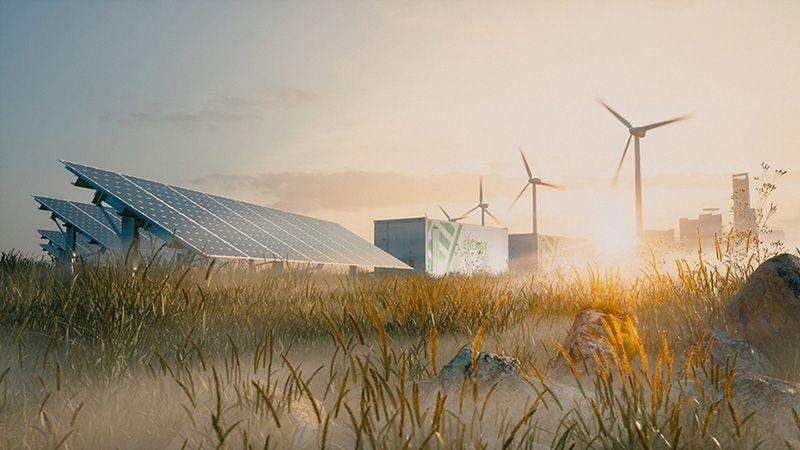The appetite for investment in energy transition assets is increasing rapidly as COP29 gets underway, according to research from KPMG International.
The KPMG Energy transition investment outlook report revealed 72% of the 1,400 senior executives surveyed say that investment in the space is growing significantly and will continue to do so in the coming years.
However, while there is growing confidence in the energy transition, there remains concerns that continued investment could slow down due to policy or regulatory risks. Some 40% of those surveyed identified these as the top barrier to investment, with market volatility a close second at 36%.
Further, the report found confidence levels in the energy transition deals and pursuit of investments in clean energy technologies and projects are high. This comes despite a prolonged period of geopolitical volatility and high interest rates.
More specifically, when participants were asked what they plan to invest in, energy efficiency, including electrification, appeared the most attractive investment in the next two years (36%), followed by renewable and low carbon energy (34%).
This data reflects the IEA’s World Energy Investment 2024 findings that recorded $2trn (£1.5trn) of the $3trn (£2.3trn) in global energy investment anticipated this year will be in clean energy tech and infrastructure, nearly twice the investment in fossil fuels.
Further, 43% of respondents said East Asia was the most attractive region for energy transition investments over the next two years, closely followed by North America (39%) and Europe (35%).
Many investors appear to be mitigating risk by diversifying their investments with 64% invested in energy efficiency technologies, including electrification, over the past two years, 56% have invested in renewable and low-carbon energy, 54% in energy storage and grid infrastructure and 51% in transportation and related infrastructure.
The report also found fossil fuels continue to play a key role in the orderly transition, where only a quarter of surveyed executives are not making new investments in fossil fuel. This comes as fossil fuels – especially natural gas – remains crucial to energy security, meaning further investment is needed to meet energy demands.
Mike Hayes, decarbonisation and nature leader & global head of renewable energy at KPMG International, said: “Policy and regulatory actions are undoubtedly shaping the energy transition—both as powerful drivers and as obstacles. It is clear that without a supportive regulatory framework, we risk holding back progress in this critical transformation.
“The path forward demands more than ambition; it needs stable, transparent, and consistent policies, like subsidies for renewables, carbon pricing, and mandates for clean energy. These frameworks don’t just support change; they accelerate it, opening doors to sustained investment and rapid growth in clean energy and infrastructure.”








